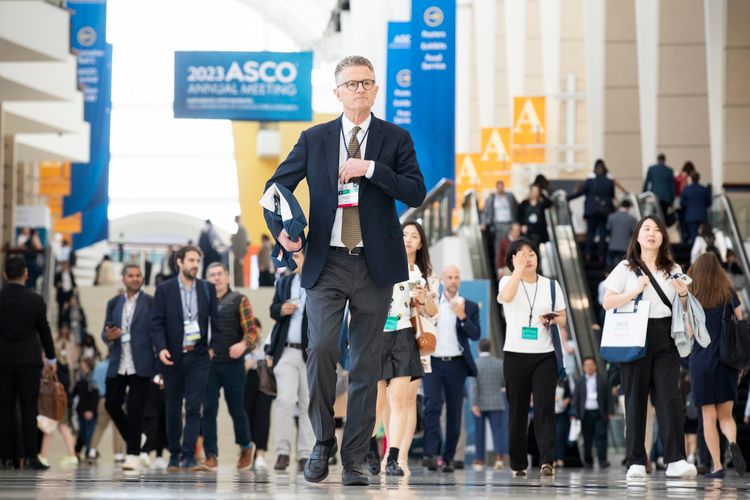Asco 2023: Trop2 Proves Merck-Kelun Deal

Gilead, Astrazeneca and Pfizer have invested heavily in antibody-drug conjugates. Merck & Co, on the other hand, made small deals with Kelun in China. This brought an early-stage portfolio of ADCs to Merck. The most important of these ADCs just gave its first human data.
MK-2870 is a type of medicine that attacks Trop2, a protein found in lung cancer. Kelun is conducting a trial on this drug. Asco presented a poster about the study. People who are interested in ADCs that target Trop2, like Trodelvy and datopotamab deruxtecan, should take note of this. MK-2870's results appear to be equal to or better than these other medicines.
The Trop2-focused area has been hurt by Trodelvy not doing well in the Tropics-02 test. Gilead bought the drug in a $21bn deal with Immunomedics and got approval for US breast cancer treatment. Now, lung cancer could be a more significant option. Datopotamab is looking into this and their Tropion-Lung01 report is a significant event for the sector. It will happen in the first half of this year.
Kelun presented an Asco abstract for a Chinese trial to treat late-stage NSCLC. 43 patients were evaluated, and 44% of them saw partial remissions according to investigators.
Tropion-Lung01 is testing datopotamab in a less-advanced PD-(L)1-relapsed setting. They compared it to an earlier phase 1 trial for various cancers. This trial showed a 24% ORR in its NSCLC cohort. Trodelvy's basket trial showed an ORR of only 17% in NSCLC. MK-2870 appears to be the best in class.
When comparing trials, there are differences in the baseline characteristics. The study sponsored by Kelun only involves Chinese hospitals. NSCLC patients in China tend to have more EGFR-driven disease compared to those in the western countries. An ADC delivers chemo and EGFR mutation-positive NSCLC is more responsive to chemo.
More Kelun patients had EGFRm-positive than the datopotamab trial. This made the treatment more effective for all patients. If we only look at EGFR wild types, MK-2870 had an ORR of 26% compared to datopotamab's 19%. This is still impressive, but expected.
To figure out how big the market is, we need to know if patients need to have high Trop2 expression. The person in charge of the Kelun study said that they looked at Trop2 afterwards, but they don't know if it affects how patients respond.
If you love ADC space, you may have heard about Kelun's poster. The poster talks about MK-2870 (also known as SKB-264). It uses a sulfonyl pyrimidine CL2A carbonate linker and belotecan-derivative payload. The drug-to-antibody ratio is 7.4.
Merck is supporting MK-2870. We are waiting for Tropion-Lung01 data from datopotamab. Trop2-targeting agents might become important in fighting NSCLC.
Trodelvy could be used in a similar way as Tropion-Lung01. It is part of a phase 3 study called Evoke-01 that will end in May 2024. But, the results from a Trodelvy trial called Tropics-03 for NSCLC never came out.
If Trodelvy doesn't work for lung cancer, it will make Gilead's investors very unhappy. They already spent a lot of money on Immunomedics. Astrazeneca paid Daiichi $2.4bn for two deals on ADCs. At least they got Enhertu out of it. Enhertu is making a big difference in treating Her2-expressing cancers.
Merck gave Kelun $47m in May 2022 for secret ADC projects. One of these was called MK-2870. Then, in December, Merck gave Kelun another $175m for seven more undeveloped molecules. It'd be incredible if Kelun turned out to have a whole ADC system that Merck could benefit from. Right now, Merck hasn't put a lot of money into this project.





